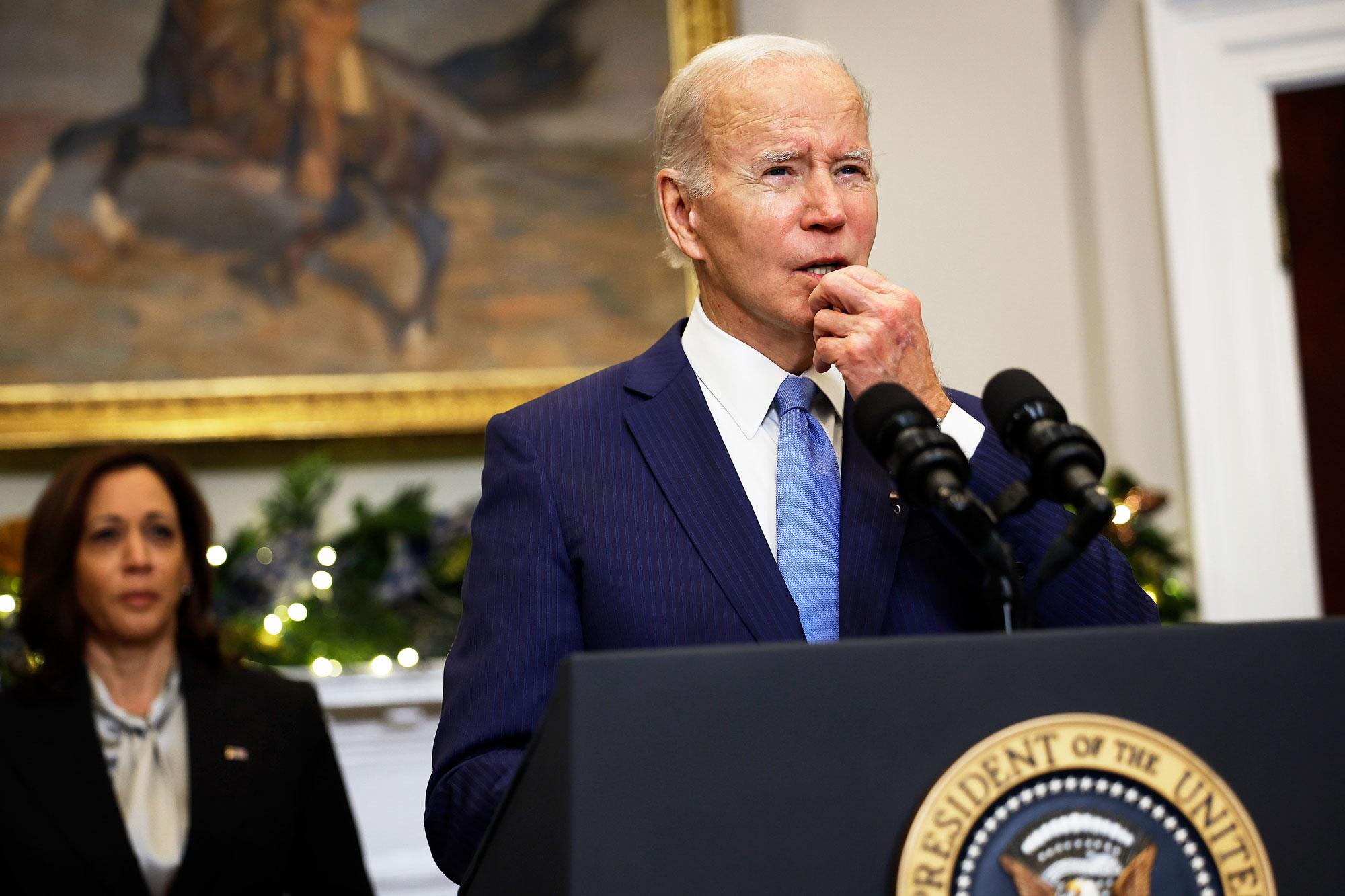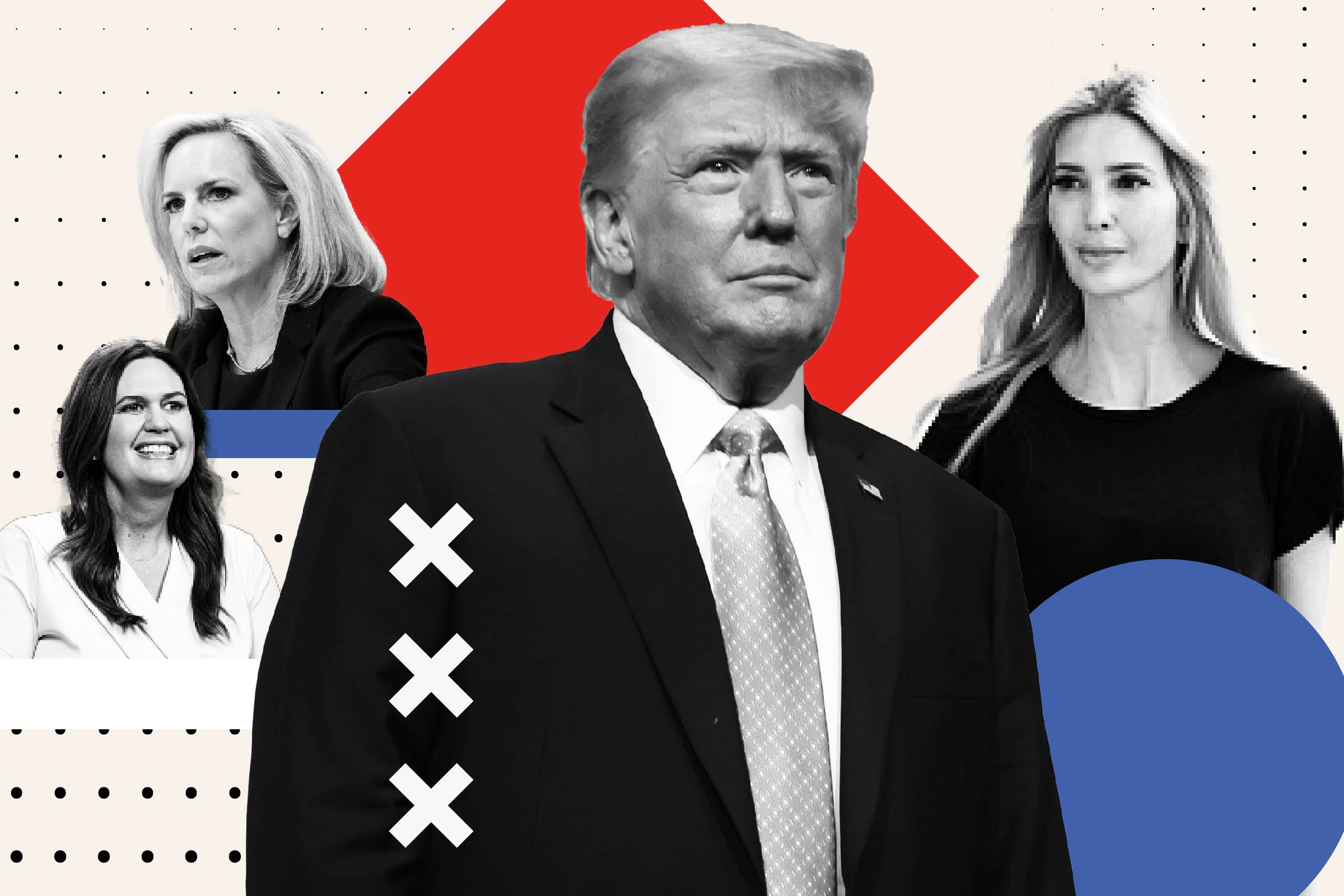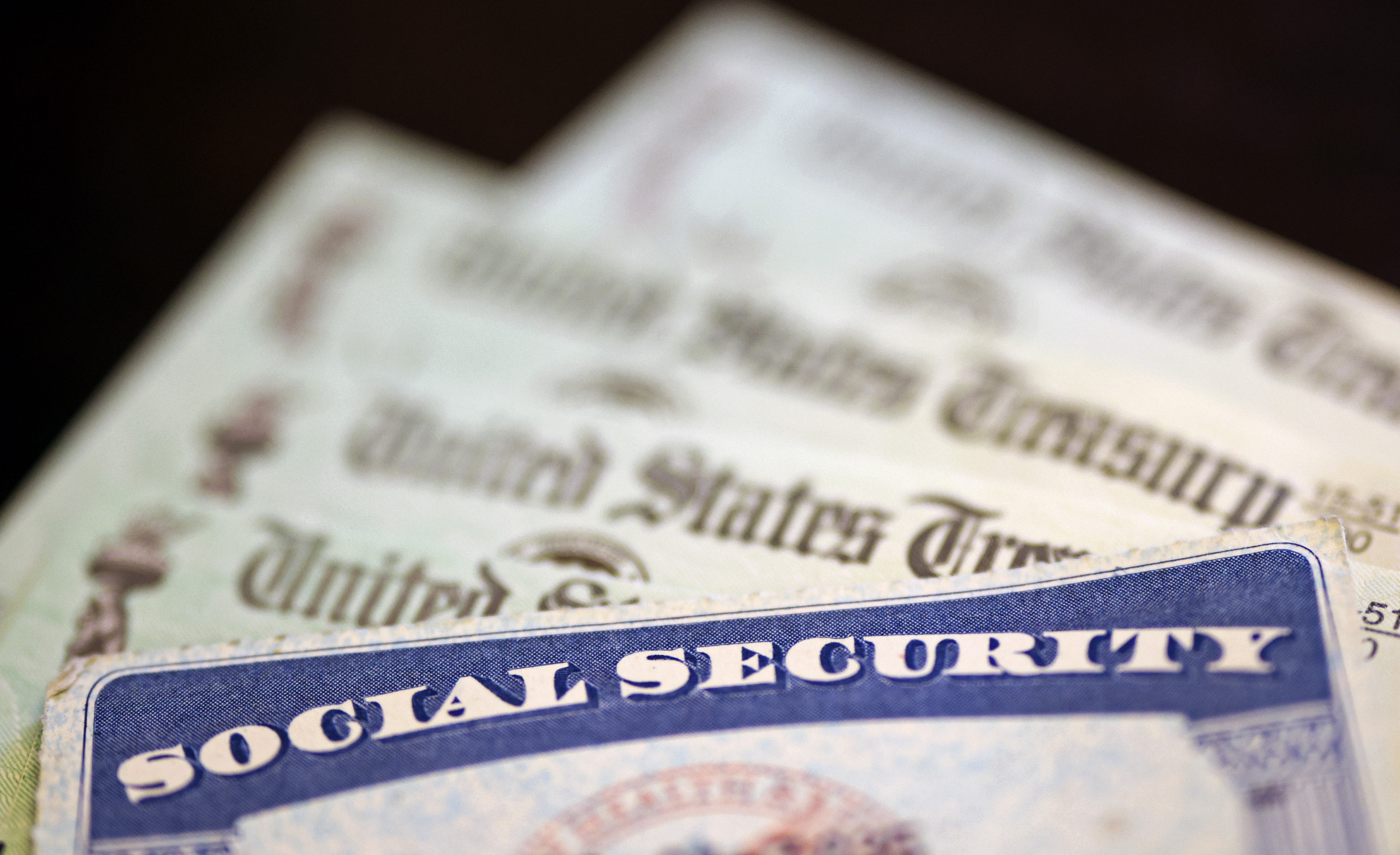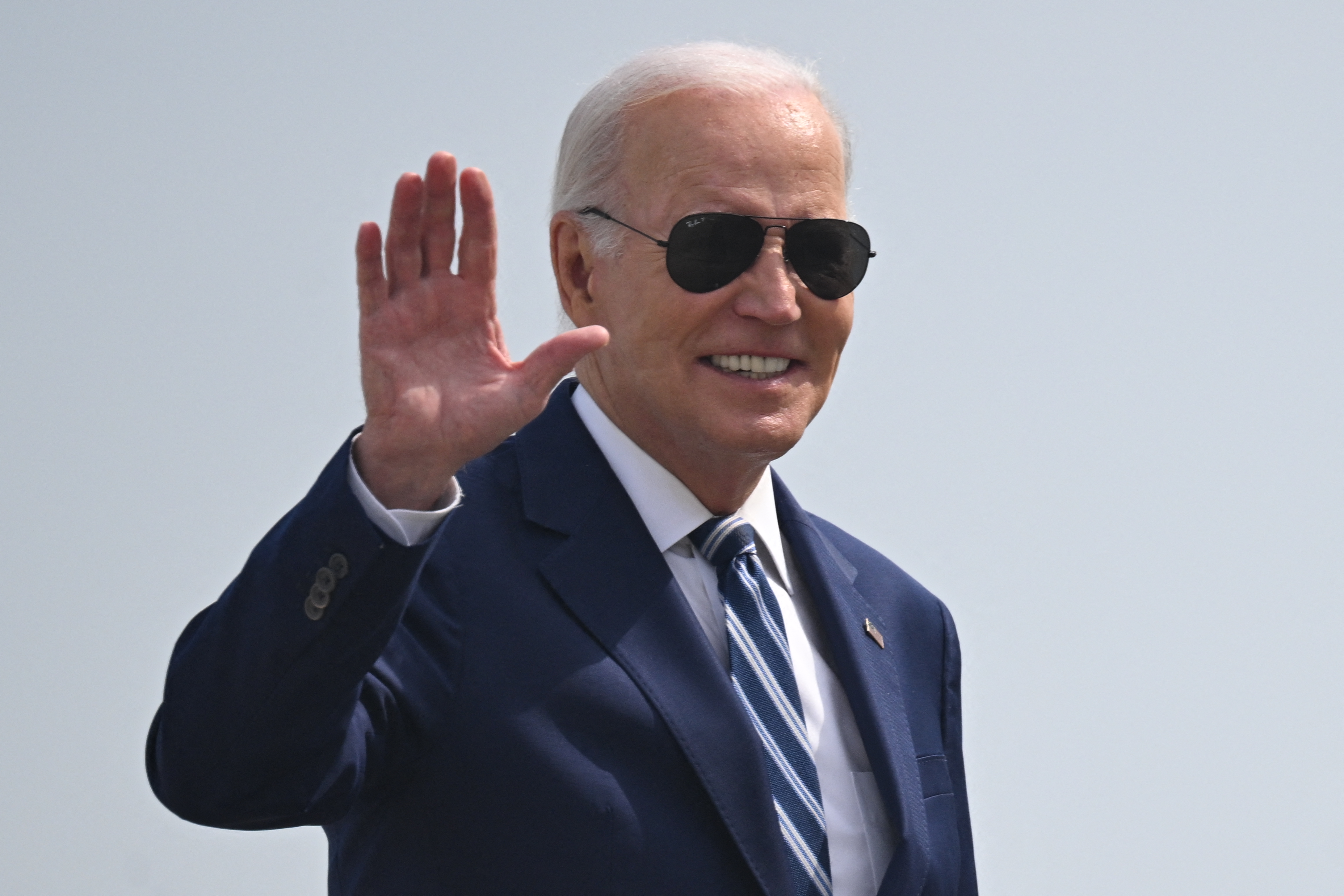The Supreme Court has dealt the coup de grace to the Biden Administration's student loan forgiveness program. Consistent with the Court's emphasis on the Constitution's separation of powers, the Court ruled that Congress had not granted Biden the legal authority to forgive debt amounting to perhaps $980 billion over 10 years. The Administration has repeatedly tried to short-circuit the legislative process by issuing major policy initiatives with scarcely a nod to Congress. The Roberts Court has rightly stymied its unconstitutional power grab again.
Candidate Biden pledged in 2020 to cancel at least $10,000 in federal student loan debt for each borrower. In August 2022, he announced a plan that would forgive as much as $20,000 in loans for low-income Pell Grant recipients and $10,000 for all other eligible borrowers. (Eligibility was capped by the borrower's income level.) The overall cost of Biden's program is estimated to be between $300 and $980 billion—a massive impact on the economy.
The soaring cost of higher education, and the burden on student borrowers (student debt is estimated at $1.75 trillion) are serious problems. But the Constitution reserves public policy choices of that magnitude to Congress. The President cannot make an end run around this process, however urgent the need for action is.
Instead, Biden's Education Department relied on a provision of the "HEROES Act," a 2003 law passed during the Iraq War. In the event of a national emergency, it allows the government to freeze, temporarily, the student loans of soldiers and their families. The law explicitly allows DoE to waive or modify student loan regulations, but only so as to ensure that service members and their families would not suffer financially because of a deployment.
Biden's DoE found such an "emergency" ready to hand in August 2022, in the waning COVID-19 pandemic, even though Biden announced only weeks later that the pandemic was over. Both the Trump and Biden administrations had relied on the HEROES Act to temporarily suspend student debt payments, interest accruals, and collections. But the Trump Administration concluded that the Act did not authorize broad loan cancellation. The use of the Act by Biden's DoE to cancel loans was contrary to government practice and interpretation in the nearly 20 years that the Act had been on the books.

Six states, including Missouri, challenged the program. The district court ruled that the states lacked "standing" to pursue the case—a constitutional prerequisite for a court to hear and decide a legal challenge. But the states successfully appealed that decision to the Eight Circuit, which blocked the program. That result teed up the case for Supreme Court review. In addition, two individual plaintiffs who did not qualify for the maximum relief under Biden's plan brought separate challenges.
There were two main legal issues before the Court, a jurisdictional issue about the plaintiffs' standing, and the "merits" question about the substantive legality of the Administration's action.
"Standing" derives from the Constitution's limits on the federal judicial power: a federal court may decide only "cases" or "controversies." For a plaintiff like Nebraska to demonstrate "standing," it must generally show that it 1) had suffered a legally recognized "injury" that was 2) fairly attributed to the defendant and that 3) could be redressed by a court.
In two very recent decisions, the Supreme Court had refused to find standing in lawsuits brought by states against the federal government. In light of those decisions, the standing of the states to litigate the debt relief program appeared clouded.
A unanimous Court denied that the individual challengers had standing. But among the state plaintiffs, as to the states, at least Missouri did. The Missouri Higher Education Loan Authority (MOHELA) would suffer an estimate annual loss of $44 million because of the program and, although it was not directly a party to the case, it was an instrumentality of the state, which accordingly made MOHELA's injury a direct harm to the state itself.
On the merits, the Court ruled that the Biden Administration once again lacked Congressional authorization for its program. After examining the text of the HEROES Act closely and finding no authority there, the Court then explained why its "major questions doctrine" also precluded Biden's plan.
The major questions doctrine derives from the Constitution's separation of powers. Under the Constitution, Congress, not the executive, has the responsibility for making major decisions of domestic policy. Congress can delegate some of those powers to executive agencies, but when it does, it must at least give the agencies intelligible standards to follow. The major questions doctrine does not directly limit Congress' ability to delegate, but it requires that Congress make a "clear statement" of its intention to delegate significant, controversial policy judgments to those agencies. The doctrine presumes that Congress wishes to retain control over such matters. If the agencies fail to identify a clear statement when they issue regulations with sweeping economic consequences, the Court will conclude that their actions are unauthorized.
Three times earlier during the Biden Administration—in two cases concerning "emergency" COVID relief and one involving a nationwide cap on carbon emissions—the Court had turned down administration initiatives under the major questions doctrine. The student loan forgiveness program suffered from the same fatal defect. Apart from being an unprecedented use of the HEROES Act, the "economic and political significance" of Biden's program was "staggering by any measure." "Practically every student borrower benefits, regardless of circumstances," the Chief Justice found. Policy decisions as momentous as that must be made or at least clearly authorized by Congress. This was not.
The Biden Administration's student loan forgiveness program was a political ploy. Knowing from earlier judicial reversals that the program was illegal, Biden announced it in August 2022 to sway younger voters in the November 2022 midterm elections. But Biden also calculated that when the Court overturned his program, he could turn the debtors against the Court, and blame "conservative Justices" for their hardship.
That gambit may or may not work. Biden's "loan forgiveness" was always a sham, characteristic of an administration steeped in contempt for law.
John Yoo and Robert Delahunty are the co-authors of the newly published Politically Incorrect Guide to the Supreme Court (Regnery).
The views expressed in this article are the writer's own.








